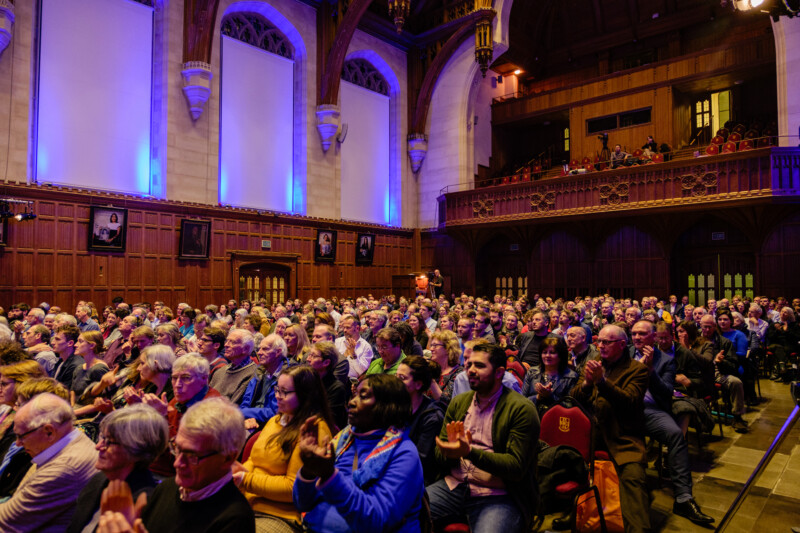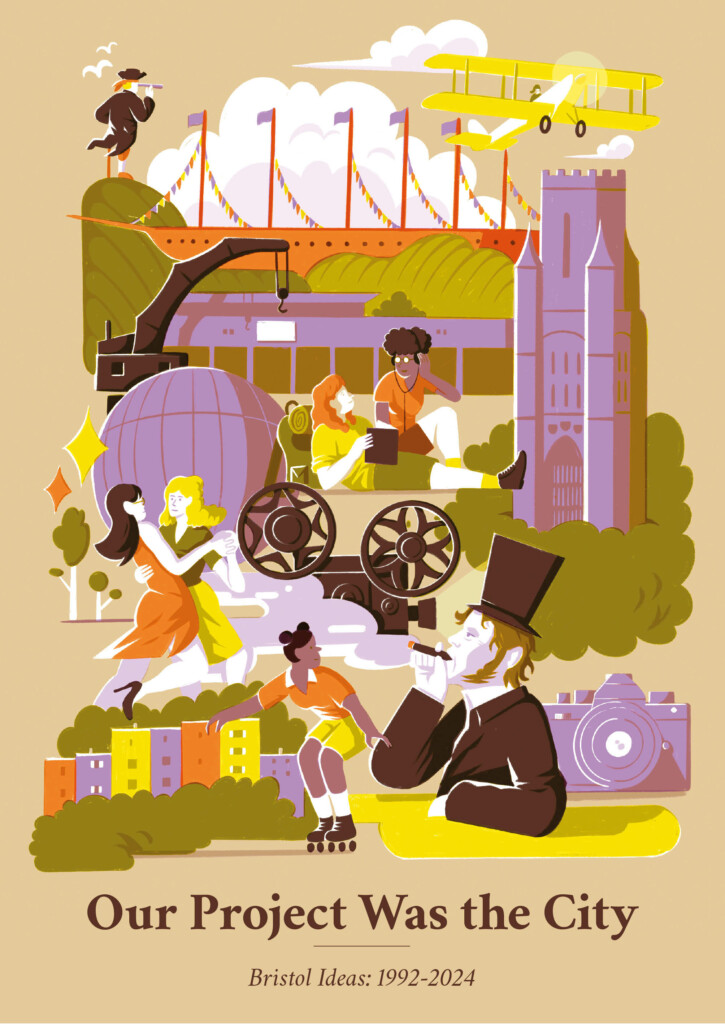My Reflections on Bristol Ideas Kate Sim Read

Share this
Being part of the audience was a special time in Festival of Ideas. Our audience at Wills Memorial Building applauds speakers at the start of Festival of the Future City 2019. (Evan Dawson)
Kate Sim Read joined Bristol Ideas in 2023 as an intern and then took up employment with the company. She had previously attended Bristol Ideas events and writes here about what this has meant to her as both an audience member and as a member of staff.
There’s something about being part of an audience that I’ve always loved. About sitting in a darkened room, phones down for a moment, all focussed on the same stage, personal conversations petering out to make space for the collective conversation that we’ve come to engage with. And I love the moment after the lights come up again, when the spell of concentration is broken and you turn to friends, colleagues or the stranger next to you and ask, ‘What did you think?’.
At the Bristol Ideas events I’ve attended during my time working here, I’ve felt collective fascination, a collective sense of broadening understanding, and sometimes even collective rage. A lot of the talks at the Festival of Ideas, and on future cities and economics deal with difficult subjects. I have learned about the pulverising of reproductive rights as fascist groups press their influence into mainstream society and law. I also have learned about food poverty, about how many children do not have enough to eat, about people choosing less nutritious food from food banks because it often takes less electricity and money to cook. I have heard people talk about feeling othered because of their race or sexuality or so many other things.
While the speakers on the Bristol Ideas panels speak of reasons for hope and take a solutions-based approach, there is still sometimes an underlying feeling of bleakness about what they explore. They often discuss issues that don’t occupy much space in mainstream media, or that become sensationalised but not holistically explored. Yet by setting up discussions about problems in our society, and then looking at where we can find solutions, we take important, if small, steps in building a kinder world. This space to learn as a group, to question and to form opinions is foundational in effecting positive change, and I often leave a talk feeling inspired both by the speakers and my fellow audience members.
I’m very interested in community and collectivity. After many Bristol Ideas events, I’ve had fascinating conversations with strangers. You quickly learn about someone when you have conversations prompted by the complex subject matter of many of the talks. To me, it’s so much more fun and fulfilling to discuss how we address the housing crisis than to talk about the Bristol weather. It’s such a launch point for stories: I’ve spoken about the dire state of the house I rent when I moved in, where we found a dead pet gecko on top of the washing machine. And I’ve listened to people share stories from countries they grew up in, about stories from their grandparents and the food they ate. I have found that the context of being part of an audience at Bristol Ideas events opens space for these exchanges with strangers that we would normally save for friends.
I deeply appreciate the space that Bristol Ideas has created for these conversations, both between the speakers on stage and between everyone else afterward. I hope that even though Bristol Ideas will cease to exist, there will still always be these precious pockets of community around Bristol that allow this way of learning about our city, each other and, therefore, ourselves.
Kate Sim Read works with Bristol Ideas on marketing, archiving, events and project management. She is a graduate of University of Bristol.

This essay is taken from Our Project Was the City: Bristol Ideas 1992-2024, published May 2024.